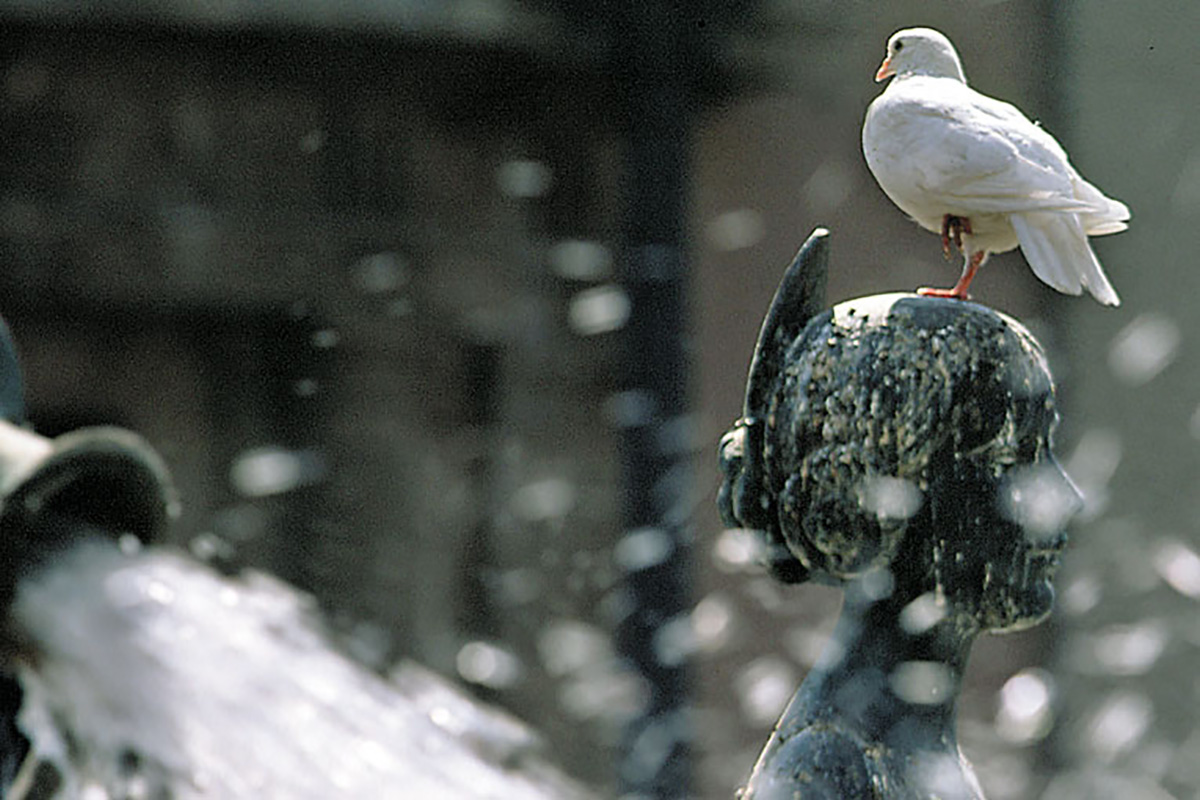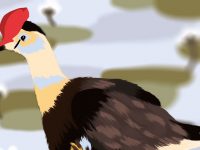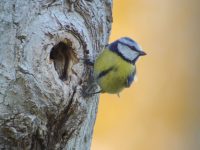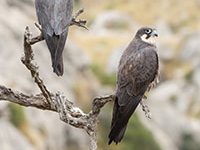
Question sent by LAURA RUBINAT (Tàrrega). ALBERT MASÓ answers:
Well, to give an answer to that we first need to settle what we understand by «urinating». Obviously, if we limit it to the action we –and the rest of mammals– make, birds do not urinate. But we could also say that they do it in a different way.
Let’s proceed step by step. We will start by explaining that micturition –which is another name for the action of urination– is the process through which urine is removed from the bladder and expelled out of the body. This is the last stage in the excretory system. Defecation, however, is the last stage of a different process: the digestive process. It is well known that mammals carry out these two functions through different tracts.
As we already stated, birds proceed in a different fashion. Among other reasons, because they do not have a bladder (ostriches are an exception to this). They lack two different output orifices, they have just the cloaca. Therefore, strictly speaking, we have to answer that they do not urinate. However, they do have the fundamental organ for the excretory system: the kidney.
And now why they do not urinate: the kidney filters blood and produces a waste –of high uric acid but low urea content– that ends up in the coprodeum, where it mixes with faeces from the digestive tract. The result is a rather liquid pasty mash of whitish appearance, which is expelled from the cloaca. The mixture is rich in nitrogen and phosphates, so it is a good fertilizer, and can be used as manure (as is the case of guano). It can also contain seeds from eaten plants that became resistant to digestive liquids to boost their spread (the will fall to the ground with their own fertilizer).
Birds with permanent nests, such as many birds of prey, form layers of faeces that sometimes provide nutrients for lichen to grow. Additionally, some sea birds like the lesser black-backed gull (Larus fuscus), «bomb» rivals with faeces so they do not steal their fish or get close to their nesting areas.
Having said that, acid makes them corrosive and a lot of urban birds such as pigeons damage the statues and façades they stand on. There is also the possibility –not very likely, mind you– that they will fall on our heads…
We will finally mention that uric acid is much less toxic than urea so it does not need to be diluted in so much water, as it does in the case of mammals. Thanks to that, part of the water is reabsorbed, thus helping prevent dehydration. They can drink less frequently so they are lighter and fly more efficiently. Also, in species living in steppes, arid or desert areas, like tetraoninae, for instance, it has an adaptive value.
Albert Masó. Biologist, writer, professor and nature photographer (Barcelona).





